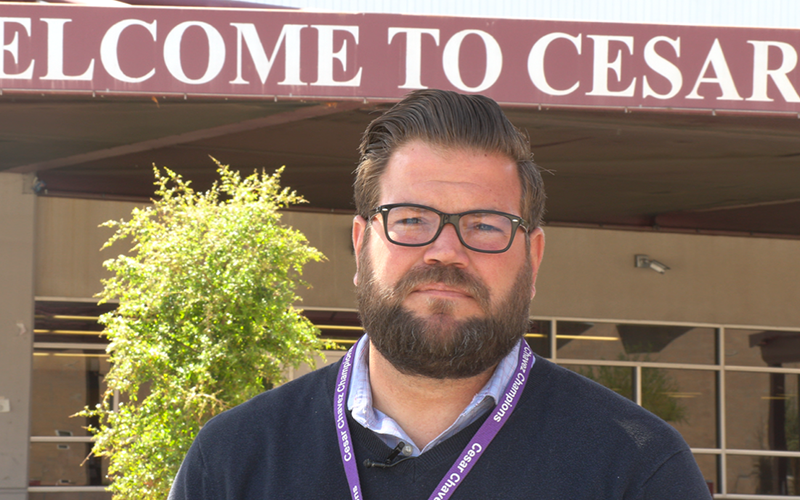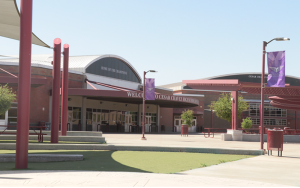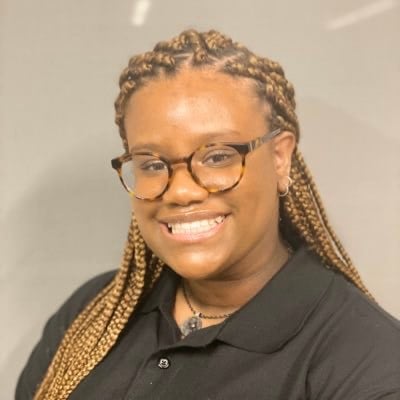PHOENIX – Forty-five percent of Arizona students in grades pre-K through 12 identify as Latino, but one report shows they’re falling behind in the classroom. One factor driving that trend, the report says, is the lack of Latino teachers in the state.
A 2021-22 report from ALL In Education – a nonprofit that compiles research, data and community feedback to create reports on the state of education in Arizona – showed that third-grade Latino students scored 27 points below white students in reading proficiency and eighth-grade students were 23 points below in math.
Stephanie Parra, the executive director of ALL In Ed, said a lack of representation in the teaching workforce is a factor.
“When students have a teacher who looks like them, they perform better on tests, they attend school at higher rates, so the absenteeism rates go down; they also see their suspension rates go down,” Parra said.
Only 16% of Arizona’s more than 58,000 teachers are Latino, according to Arizona Department of Education data analyzed by ALL In Ed. Advocates suggest creating a student-teacher pipeline in Latino communities to improve those numbers.
“If Latino students are not graduating high school at higher rates,” Parra said, “or going to college at higher rates, or getting college degrees, or if college is not accessible to them, or a pathway made available to them, it is hard for them to become teachers.”
Only 71% of Latino students graduate from high school in four years, according to state data. Of those who graduate, 22% enter a four-year college and 54% graduate, the ALL In Ed report said.
Implementing solutions does not come without challenges, however. Matthew Georgia is the principal at Cesar Chavez High School in south Phoenix, where nearly 75% of the student body and 26% of teachers are Hispanic, according to the Department of Education. In 2021, only 16% of students at Cesar Chavez High School were at least proficient in English language arts in Arizona’s Academic Standards Assessment testing (formerly the AzMerit test).
Georgia said the value communities place on education plays a factor in academic achievement for students.
“Some communities value education more than others,” he said, noting that generational poverty, access to good health care and the availability of stable housing factor into a student’s achievement in the classroom. Georgia hopes strengthening the value of education in communities will help to create a pipeline to teaching.
Education advocates propose solutions
“I think it has to be a career that looks to be respected and supported by communities,” he said. “ I think if we create an opportunity for students to see that, you know, teachers live a good life, and they contribute back to their community, and they can help shape the future of future generations. And I think more people will be more enticed by the work of education.”

Matthew Georgia, principal of Cesar Chavez High School, explains how community value is important to strengthening teacher pipelines on April 5, 2022. (Photo by Mia Marquez/Cronkite News)
Chavez High participates in ALL In Ed’s Parent Educator Academy, a leadership program for parents to become more involved in their children’s education. It aims to help parents communicate with teachers and take a more hands-on role.
“They are gaining a sense of self-efficacy and understanding that they have agency over their own lives, over their own students’ education, and that they can truly be partners in the educational experience of their kids,” Parra said, adding that several parents in the academy have expressed interest in pursuing careers in education.
Exposing Latino students to educational career paths in high school can help close the representation gap, she said, by leading to more diverse applicant pools for teaching jobs. One initiative aiming to accomplish this is Achieve60AZ, where the goal is to have 60% of all working-age adults in Arizona have at least one post-secondary credential by 2030.

At Cesar Chavez High School, 71% of students and 26% of teachers are Hispanic. (Photo by Mia Marquez/Cronkite News)
A statewide alliance is driving the initiative to reach the 60% goal. The nonprofit Education Forward Arizona uses the Arizona Education Progress Meter, which tracks eight key metrics of educational achievement, including third-grade reading proficiency, eighth-grade math scores and high school graduation. The attainment rate for Arizonans 25 to 64 with a post-secondary credential is at 46%, as of 2019.
Rich Nickel, president and CEO of Education Forward Arizona, said post-secondary education can provide a link between representation and achievement. According to Nickel, nearly 7 out of 10 jobs require some form of post-secondary education.
Requirements for Arizona K-8 teachers include completion of a teacher preparation program or two years of teaching experience, plus education coursework and a bachelor’s degree from an accredited college or university. Passing scores on subject knowledge exams also are required.
To achieve the 60% attainment goal, Nickel said, the alliance is working with schools across the state to provide resources to predominantly high-need and first-generation students, including showing students how to gain access to and enroll in AmeriCorps programs.
“At the end of the day, if we do not provide those supports and that investment in this very fast-growing population of students that want to be successful, then we’re really doing ourselves a disservice as a state,” Nickel said.
Advocates say investing in Latino education would benefit not only the students, but also Arizona, which is more than 30% Hispanic or Latino, according to 2020 census data.
“We are operating with a sense of urgency around creating opportunities for our community because it is the future of the state,” Parra said.


